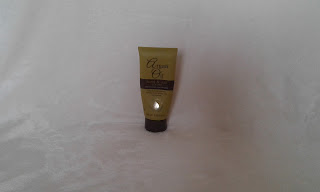Posting my IB English HL essay - Writing Wednesday
Hello everybody and welcome back to another blog post,
I have a lot of essays to get through so I thought I would upload another one today. Today, I am posting my IB English Higher Level essay that I wrote as part of my extensive coursework for the International Baccalaureate. Here I compare William Blake's Songs of Innocence and Experience poems, whilst answering the question, How does Blake influence the reader’s perspective of children in Songs of Innocence and Experience? I hope you enjoy! 😀💜
How does Blake influence the reader’s perspective of children in Songs of Innocence
and Experience?
Childhood is an unforgettable, finite time period, that is equally characterised
by innocence, joy, and sadness. Many
poets have been able to communicate the beauty of childhood through their
bodies of work. However, there was no other poet who expressed as much
admiration for children as much as the poet William Blake. Like many poets of
his time, Blake was most influenced by the Industrial Revolution, as it was a
time period that focused on wealth over nature and innocence, the direct
antithesis of many romantic narratives at the time. During the Industrial
Revolution, Blake believed that the state was objectifying children and the Church
of England was endorsing child labour. Although Blake’s poems are centred
around a range of social issues, the Songs of
Innocence and Songs of Experience poems largely centre themselves around
the topics of child labour and child abuse, to inform readers about the plight
of working-class children, which was relevant to his authentic audience (Forward,
2014). Thus, in this essay I will be exploring Blake’s literary and poetic
devices and how they persuade Blake’s readers to change their perspective of
children.
In Blake’s Songs
of Innocence poem, “The Chimney Sweeper,” Blake uses the persona of a young
chimney sweeper, speaking in first-person perspective, to connect his readers
to the challenges that they might face. For
example, in the first line of the poem, “When my mother died, I was very young”
Blake uses the pronouns “my” and “I” to embody the perspective of the chimney
sweeper, allowing the readers to read through the eyes of the victim, who Blake
is becoming as the speaker. The verb “died” and the noun “young” exemplifies
Blake’s dichotomy between innocence and experience, enabling the reader to
witness the feeling of struggle in conjunction with the youthful innocence of
the child. The use of sibilance in “So your chimneys I sweep, and in soot I
sleep” increases the musicality of the sentence, which allows the reader to
focus in on the poor conditions that the chimney sweeper is made to sleep in, which creates a sense of empathy and invokes
a humanistic connection between the reader and the speaker. The metaphor
“locked up in coffins of black,” is used to describe the chimney sweepers who
die attempting to sweep large, industrialised chimneys. This in conjunction
with the line “And by came an angel, who had a bright key”, alludes to the
power of the divine, showing readers that the angel has the power to free the
chimney sweepers from their treacherous work or their sins. Blake utilises the adjectives
“naked” and “white” to encompass the idea that the chimney sweepers will be
cleaned from the soot on their bodies as they transcend into heaven, alluding
to the idea of baptism. The hyperbolised nature of this message suggests that this
idea of perpetual freedom, is being sold to young children as a lie, communicating
to the reader that the children have become victims of a religious rhetoric which
has allowed the church and the state to take advantage of children. Blake uses
a sarcastic diction in last line of the poem “So, if all do their duty, they
need not fear harm,” to ridicule the mantra that labour will grant the chimney sweepers
a sense of security. During Blake’s generation, people would have largely
viewed children from the working-class as worthless, cheap labour. Blake can
influence reader’s opinion of children by representing them as innocent individuals
who are forced into the injustices of the state.
Moreover, in Blake’s Songs of Experience poem, “The Chimney Sweeper,” Blake also
highlights the hypocrisy of the parents, who are not taking up the burden of
the financial hardship and are instead choosing to neglect their child by forcing
them to take up dangerous work. This allows the readers, who might be taking
part in similar actions, to self-reflect and change their perspective of
children. In the first line of the poem, “A little black thing in the snow,” Blake
uses the noun “thing” and the diminutive adjective “little,” to objectify and
dehumanise the chimney sweeper to portray them as inferior. Additionally, Blake
also uses the adjective “black,” which represents the soot on the child’s body,
in direct contrast to the innocence displayed by the colour “white” in the Songs
of Innocence poem, to portray the chimney sweeper as sinful and worthless. During
the Industrial Revolution, when there was an influx of child labour, working
class children began to be heavily commodified by the state and not treated as human
beings (Griffin, 2014). In the middle of the poem, Blake includes a Volta
through the change in rhyme scheme from a couplet to an alternate rhyme, which represents
the change in perspective from adult to child, to show how the adult’s neglect
are affecting the chimney sweeper. In the sentence “They clothed me in the
clothes of death,” the “clothes of death” becomes the metaphor for the
dangerous forms of labour that the child is forced to endure as a chimney sweeper.
The lack of control that the child has over their actions, as they are being
forcefully clothed by their parents, shows that children are vulnerable to the
effects of child labour. Furthermore, in the last line of the poem, “Who make
up a heaven of our misery,” Blake suggests to readers that the church is creating
the land of the destitute and benefitting from child labour. In his Songs of
Innocence poem, Blake shows that it is the readers whose chimneys are being
swept, suggesting that it is the reader’s responsibility to take a stand
against child labour. In this poem Blake builds upon this idea, persuading
readers to consider the rights and civil liberties of children.
Similar to “The Chimney Sweeper” Songs of
Experience poem, Blake applies
glorified religious imagery to the text of “Holy Thursday” Songs of Innocence, to highlight the
hypocrisy of the church’s attitude towards children. The main duty of the Church
of England was to aid and be inclusive towards vulnerable working-class children.
However, Blake’s authorial choices in “Holy Thursday,” expose some of the
hidden injustices of the church. For example, in the first line of the poem, “their
innocent faces clean,” Blake describes the children as looking presentable
whilst entering St Paul's Cathedral for the Ascension Day service, initially portraying
a sense of innocence and decency about the religious ceremony. However, compared
to the chimney sweeper in Blake's Songs of Experience poem, the faces of
these working-class children are cleaned to make sure that they look
presentable for the ceremony. Additionally, the inclusion of the colours “red,
and blue, and green” to describe the children, manifests a sense of hyperbolised
co-ordination. This implies that the church has a façade, hiding the injustices
of poverty instead of being honest and dutiful in aiding vulnerable
working-class children. Blake also describes the working-class children in the
poem with a sense of purity. For instance, the line “but multitudes of lambs,”
is an allusion to Christ as Jesus
is the lamb of God, who sacrificed his life for the sins of humanity. Lambs
are typically sacrificial animals in the Christian faith and by comparing the
children to the lambs, Blake’s suggesting that the church thinks they are
disposable. The “multitudes” of innocent lambs, suggests that Blake is using
this allusion to express the large-scale oppression that is inflicted on these
innocent children. “The Chimney Sweeper” Songs of Innocence speaks of a
list of young children such as “Dick, Joe, Ned, and Jack” who die sweeping
chimneys. By highlighting the implications of the church’s actions, Blake is
giving a voice to the children who are being oppressed. “The hum of the
multitudes” is an onomatopoeia, reflecting the children’s cries, calling out to
the adults for help. This may be a direct call to action from Blake to persuade
readers to change their behaviour. Here, readers can begin to understand
that children are individuals that need to be protected instead of
oppressed by institutions like the Church.
In his poems, Blake aimed to replicate the actions of the state and the church to make his
readers, who were ignorant of their power, aware of their influence. The
Chimney Sweeper poems focused on the corrupt nature of the state and the church
and how this was damaging the lives of working-class children. Blake’s Holy
Thursday poem focused on the hypocrisy of the church and how the church was hindering
the lives of working-class children, instead of helping them. By making readers
aware of their personal impact through exposing their actions, Blake could effectively highlight the suffering of working-class children,
proving to people that children were vulnerable and emotive human beings who were
made to endure unnecessary adversity. This ultimately influences readers
perspective of children in a positive way.
Bibliography:
Blake, Songs of Innocence: The Chimney
Sweeper:
https://www.poetryfoundation.org/poems/43653/the-chimney-sweeper-a-little-black-thing-among-the-snow
Blake, Songs of Experience: The Chimney
Sweeper:
Blake, Songs of Innocence: Holy Thursday:
Forward, The British Library, The
Romantics, 15th May 2014, https://www.bl.uk/romantics-and-victorians/articles/the-romantics
Griffin, The British Library, Child
Labour, 15th May 2014,
https://www.bl.uk/romantics-and-victorians/articles/child-labour
Do you like William Blake's poetry? Let me know in the comments below and I'll be sure to reply to them. I ♡ hearing from you!



Comments
Post a Comment
Thanks for leaving your comments! I really enjoy reading your positive and constructive messages. They really make my day! 💜